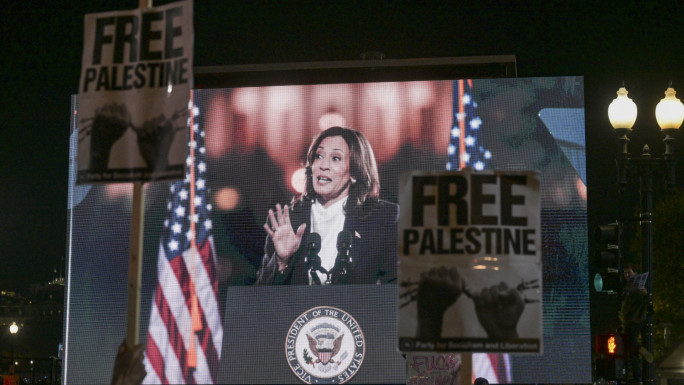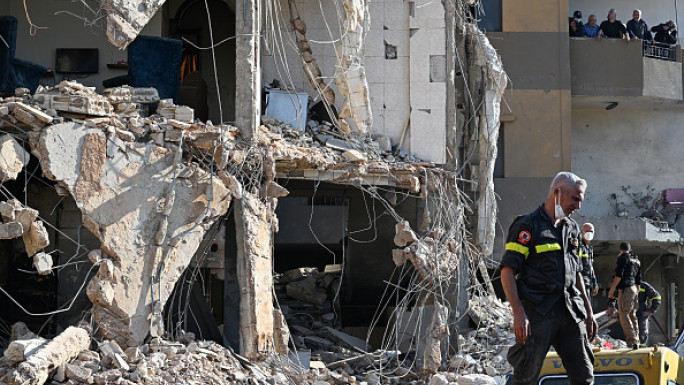
Rethinking future Iran-Iraq energy relations
Iraq is perhaps Iran's most important neighbour, sharing the country's longest border and deep demographic, religious and ideological ties - not-to-mention vast reserves of natural resources, which may provide the basis of a convergence of geopolitical interests to the benefit of both.
Given the recent history of these two former warring nations, the two countries today enjoy surprisingly good political relations. With huge oil reserves, both Iran and Iraq are members of OPEC and have enjoyed a long presence on the world oil markets.
They share a number of fields, with the majority of Iraqi oil fields located inland and thus easy to extract, and the majority of Iranian oil and gas fields located offshore and therefore much tougher and costlier to exploit.
There is no doubt that the establishment of security and political stability are important in ensuring the success of efforts to expand the production capacity of both suppliers. Iran has frequently stated that is ready to develop oil and gas in cooperation with Iraq. Iranian energy firms are equally interested in Iraq's energy infrastructure and fields.
Thus, the future holds much in the way of regional cooperation, with possible areas for this outlined below. Events and developments in other areas may, however, hold sway over their realisation.
Iran-Iraq Natural Gas pipeline
In 2013, Iran signed an agreement to export gas to Iraq. Iranian gas is exported to Iraq to supply the country's power plants. With seven million cubic metres of gas being pumped to Baghdad daily, Iraq has become the second-largest export destination for Iranian gas.
Iran has agreed to export 40-65mcm to Baghdad and Basra every day for the next six years, both countries having invested around $2.3 billion in the construction of a shared pipeline.
 |
Iran and Iraq have signed an agreement allowing Iranian companies to assist in the construction of Iraqi LPG facilities |  |
When the pipeline was launched in 2017, Iran began to export 14mcm to Iraq daily, a figure it looks forward to increasing. The project is a short-term one which involves exploration in gas-rich areas of Iraqi Kurdistan. Iraq is also interested in using Iranian capital and technology and experience in the LPG sector.
Iraq is planning to use LPG in cars and housing. Iran and Iraq have signed an agreement allowing Iranian companies to assist in the construction of Iraqi LPG facilities. This cooperation comes in various forms, including distribution, provision of vehicles, and the construction of hospital and residential complexes.
The volume of gas exports to Iraq are set to increase to 35 million cubic metres per day with the launching of a sixth natural gas pipeline.
Oil swap
Iran is transporting Kirkuk Oil to the consumer market. In past years, Iran has used Turkey's Ceyhan port to transit oil to markets. In December 2017, both countries signed a trade agreement promising to swap a daily amount of 60,000 barrels of Iraqi oil from Kirkuk.
This gives Iran the opportunity to have a greater sphere of influence in Iraq, with all the economic benefits this ensures, providing an opportunity for the central government in Iraq to exert greater control over Iraqi territory.
Electricity export
Iran exports electricity to its neighbours and is planning to become a regional electricity hub in the long term. Iran exports between 200 to 250 MW to Iraq, Afghanistan, and Pakistan. Iraq takes a large share of this, with around 120-130 MW electricity. Iraq is the biggest importer of electricity from Iran.
Twitter Post
|
Last summer, Iran cut off electricity to Iraq due to a shortage in its domestic market. Some analysts have said that Iran aims to export to Iraq for political as well as economic reasons. In September 2018, Iraq was unable to pay its electricity bill to Iran, and has a debt of around $1.4 billion outstanding to Tehran.
After Iran cut the power, Baghdad signed an agreement with Saudi Arabia to make up the shortfall. Saudi Arabia reportedly offered to build a 3000-megawatt solar plant in Saudi Arabia and sell electricity to Iraq at a quarter of the price of Iranian supplies, though Iran plans to increase imports in general despite this loss of custom. Domestic supplies remain, however, a priority.
Joint Oil fields
Iran shares a number of oil and gas fields with Iraq. Iran's inability to attract foreign capital and technology to recover oil and gas production capacity in light of sanctions particularly affects its inability to benefit from the shared fields.
By 2017, Iraq was involved in the extraction of nine shared oil and gas fields at Azadeghan, Yadavaran, Azar, NaftShar, Behloram, Paydar Gharb and Arvand.
At present, Iraq produces twice as much as its neighbour from shared fields. Iraq has managed to increase its oil production from around 1.7 million barrels a day to 4.7 million barrels per day in the time between 2005 and 2017, making it easier for foreign companies to enter the market and add to investment.
In June 2018, Iraq ceded the exploration and development of several oilfields near Iran to the UAE's al-Hilal company. At the same time, Iran launched measures aiming to increase production in the West Karun block, some of which is shared with Iraq. It should be noted that the amount of reserves in the Iranian section, which includes the Azadegan fields (north and south), Yaran (north and south), is estimated at 64 billion barrels.
Russian companies currently have had an active presence on the Iraqi side of these fields, yet the long delay in Chinese companies launching work on the Yadavaran and North Azaghan Fields has caused Iran to miss out on effectively exploiting these reserves.
 |
After new sanctions are introduced, foreign oil firms will be unable to invest in the Iran energy sector at all |  |
US withdrawal from the JCPOA
The US withdrawal from the JCPOA Iranian nuclear deal and its re-implementation of fresh sanctions against Iran's energy sector provides a good opportunity for Iraq to increase its oil and gas production from shared fields and take the lead over Iran's share of the consumer market.
It can be expected that after new sanctions are introduced, foreign oil firms will be unable to invest in the Iran energy sector at all.
Iraq is also increasing its share of the Turkish oil market and is likely to overtake Iran in this regard. Furthermore, if Iran is no longer able to enjoy electricity deals with Iraq, Saudi Arabia will take its share in Iraq's electricity market.
Given the political tensions between Iran and Saudi Arabia, Riyadh is no doubt ready to take effective steps to exploit the resulting shortfall. Iran needs to revise its regional policy and resolve its current tension with its neighbours if it is interested in using energy exports as an instrument of foreign policy.
The US withdrawal will not only delay Iran's plans to increase production in the common oil fields, but will provide Iran's neighbours with an opportunity to encroach on what little progress Iran has made, and take a larger share of the regional and global oil markets.
Shared resource pools can act as a good basis for regional diplomacy to improve and expand ties with neighbouring countries. However, the continuation of sanctions will mean increasing the withdrawal of neighbouring countries from common areas and reducing Iran's presence on the global market.
Omid Shokri Kalehsar is a Washington-based senior energy security analyst.
His primary research interests are in the field of energy diplomacy, US energy policy, the geopolitics of energy, Iran-Russia relations and Iran-Turkey relations.
Follow him on Twitter: @ushukrik





 Follow the Middle East's top stories in English at The New Arab on Google News
Follow the Middle East's top stories in English at The New Arab on Google News


